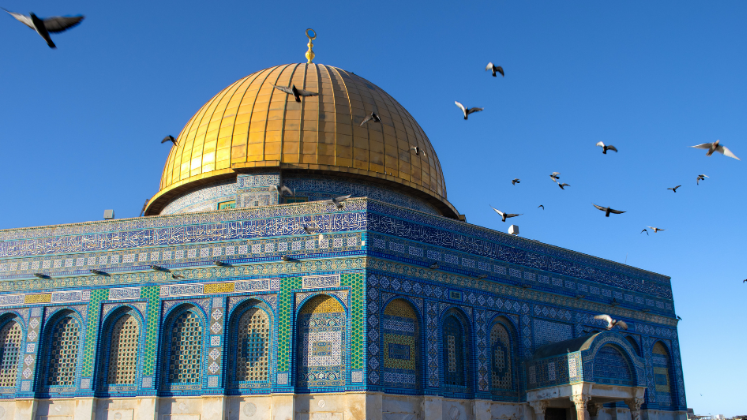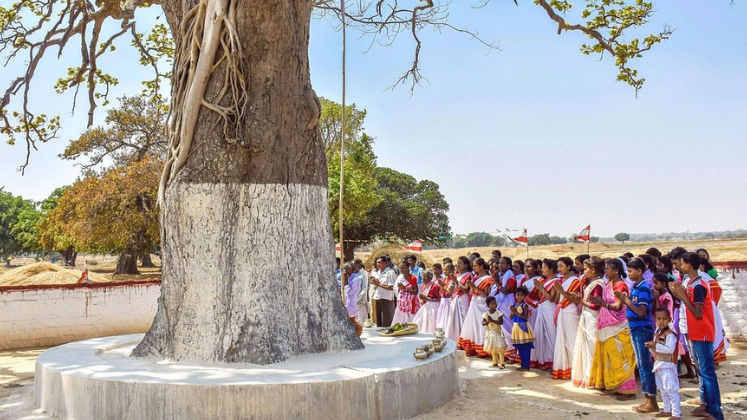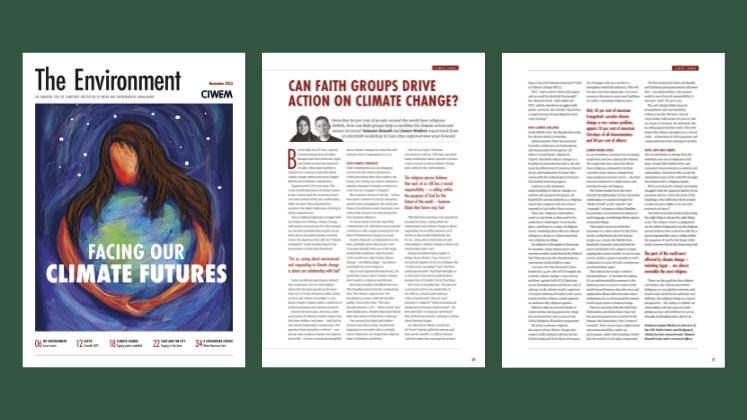Liberals talk about statehood, the Right talks about terrorism, and the Left talks about colonisation. Who will talk about religion? Asks Professor James Walters.

In May 2022 I stood in the Al-Aqsa Mosque surveying the damage this one-thousand-year-old building had sustained following the violence that erupted through the Old City of Jerusalem a few weeks before. The coinciding of the Muslim holy month of Ramadan and the Jewish festival of Passover had heightened tensions around this most contested of religious sites. Jewish extremists had been arrested in mid-April as they planned to offer a Passover sacrifice in the compound now reserved for Muslim worship. Violent clashes broke out, Palestinians barricaded themselves in the mosque, and Israeli police broke in. As I was shown the damage, I was taken again by the Waqf (the mosque authorities) to the minbar (pulpit) where in 1969 the Australian Christian Zionist Denis Michael Rohan had used kerosene to start a fire in the hope of destroying the mosque and enabling the rebuilding of the Jewish temple destroyed by the Romans in AD70.
The war since 7th October has focused on the Gaza Strip, some 70 miles from Jerusalem, meaning these religious themes have been far from prominent in media and political commentary. Familiar discourses of land, statehood, terrorism and colonisation have instead shaped our understanding of current events and their histories. And yet Hamas called its sickening attack on Israelis the “Al-Aqsa Flood” and stated that it was motivated by and planned following the 2022 violence at Al-Aqsa, the third holiest site in Islam. Clearly multiple factors are at play; but religion is entangled in all of them and has been increasingly central to the discourses of both sides, particularly since the turn of the millennium. The Second Intifada was sparked by Ariel Sharon’s visit to the Temple Mount in 2000. At the Camp David Summit of the same year (the last gasp of the peace process) American negotiators recount being surprised by the centrality of Al-Aqsa to the Palestinians’ demands.
On the same trip in 2022 I visited Hebron in the occupied West Bank. This is also some distance from Jerusalem, but the religious divisions are no less intense. Like Al-Aqsa, the great Ottoman mosque, built as a shrine to Abraham and his family, has also been subject to Zionist violence. During the Jewish festival of Purim in 1994, again overlapping with Ramadan, the ultra-Zionist Baruch Goldstein slaughtered 29 worshippers with an assault rifle. The incumbent Israeli Prime Minister Yitzak Rabin condemned him as a “degenerate murderer” bringing “shame on Zionism.” Yet the attack did not lead to greater protection for Islamic worship but the division of the mosque to create a synagogue for the growing numbers of settlers who praised Goldstein as a hero. As I walked down the street with a colleague, one of them accosted us and demanded to know whose side we were on. “We are priests from England,” we said, “we don’t need to pick sides.” “Rubbish,” he replied, “God demands that we take a side, and he will judge us.”
As media attention in recent months has focused on Gaza, violence has surged in Hebron and across the West Bank. Jewish extremists, wanting to recover the biblical territories of Judea and Samaria, have seen the war on Hamas as their opportunity to consolidate their grip on the land and drive Palestinians out. These religious extremists have friends in high places. Benjamin Netanyahu’s far right coalition partners support such actions both in the West Bank and in Jerusalem. Bezalel Smotrich, the finance minister, who consistently uses the West Bank’s biblical names, has significantly increased funding for settlements, even in the weeks since 7th October. National security minister Itamar Ben Gvir has himself visited the Temple Mount and spoken of its significance in Judaism, stoking fears among Palestinians that a division similar to Hebron could be proposed to replace Jerusalem’s precarious “status quo”. The Biden Administration rightly sees these people as a major threat to stability, condemning Smotrich and Ben Gvir’s call for the resettlement of Palestinians from Gaza and likely applying pressure to stop a march of religious extremists through the Old City to the Temple Mount in December.
I am a religious leader and a scholar of religion, so people might well argue that I am predisposed to overstate religious factors. But what I have seen on numerous trips to Israel and Palestine is an intensification of powerful religious imaginaries that are simply not understood or taken seriously in the West. Liberals talk about a two-state solution, a possibility long abandoned by the majority in the region. The Right talks about terrorism in terms reminiscent of the disastrous post-9/11 interventions, and the Left has adopted a lens of racism and colonialism that continually fails to encompass the complexities of what is happening. So, who will talk about religion? Who will open a Bible and discover that land and statehood are not purely secular concepts but embedded in Judeo-Christian history? Who will read of the Prophet Muhammad’s Night Journey in the Qur’an and learn of Jerusalem’s profound significance to the world’s 1.7 billion Muslims? Who will actually pay attention to what people on the ground are saying about God and the promises they believe God has made to them? These will be the people who break through this miserable, hate-fuelled conflict that no side is able to win.





